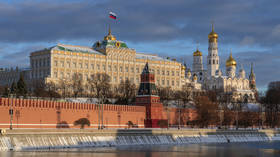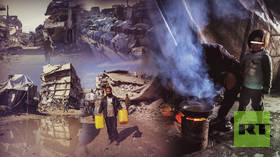Georgian police accused of brutality
Georgian police are being accused of brutality during Wednesday's violent crackdown on opposition protesters in Tbilisi. TV pictures showed officers and soldiers using a range of weapons to disperse crowds, including rubber bullets, tear gas and a sonic g
Images broadcast around the world revealed armed officers blasting crowds with a high-pressure water cannon. A few minutes later, police fired tear-gas canisters and rubber bullets to scatter demonstrators.
There is also video footage of masked riot police clubbing unarmed protesters before putting them into police vans.
Special weapons expert Viktor Siryk described the police action as “an inhumane means of crowd control.”
“Georgian police used an acoustic gun. It’s a non-lethal weapon that disorients people for a period of time,” Mr Siryk said.
“Also, officers used so-called stink bombs and rubber bullets that can cause very serious damage.”
It's believed much of the equipment was imported from abroad. Iraqi police use such weapons to control crowds.
“A democratic country could never use them against peaceful demonstrators.”
The police's co-ordinated response to the non-violent protest has caused widespread anger in Georgia.
The use of high-tech foreign weapons has led to accusations that Georgian police were planning for Wednesday's bloody showdown.
Questions are now being asked about where the blame lies for the violence.
“Whoever ordered using them should be held responsible,” Viktor Siryk said.












